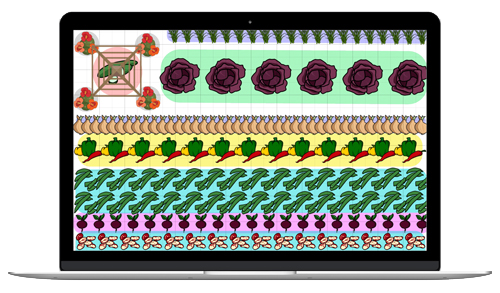
Optimum Soil pH Levels for Trees, Shrubs, Vegetables, and Flowers
The Almanac Garden Planner - Use It Free for 7 Days!
Plan your 2025 garden with our award-winning Garden Planner.

Fall Flowers and Foliage
Fall Vegetable Gardening
Fall Garden Cleanup
Garden Soil Preparation
Fall Nature
ADVERTISEMENT
Hello Ms. Boeckmann,
I am a researcher at West Virginia University in the Environmental Engineering Department and I would like to use your table of pH values in one of our analyses. Can you tell me where you found these pH ranges: USDA, EPA, etc. -- the original information source would greatly help. Thanks
Using Gypsum will raise the pH, so I am not sure why that was recommended to lower the pH for blueberry. One thing that works pretty well is to add coffee grounds to the soil, and also add regularly as side dressing. In Davis, California, we had really alkaline soil and coffee grounds in the garden seemed to do the trick. You can pick them up at coffee shops who are more than happy to give them away
I have a question does the ph level of the soil modify the pg level of the plant, fruit or vegetables
Your listing of 6.0 - 7.5 for Petunias is incorrect. Petunias have a high Fe need and so should have a lower pH. Try 4.5 - 6.
I am the retired Director of Horticulture at the Mass. Horticultural Societky.
Hi Bruce,
Thank you for the correction! We have updated the table.
Please add more vegetable and fruit ph range, like onion, strawberry, orka(lady finger, mint, green chilly etc.
Hello,
I planted a young blueberry bush in my garden in the spring. It did wonderful right away and even produced blueberries after only a few months. For the past month or so though, the leaves have turned reddish, and there are no more fruits. At first, I thought the cottontail rabbit babies we had in the yard were the problem, but they have since grown up and moved on, and there is no apparent damage to the tronc or leaves themselves, besides the color of course. After researching the problem, I decided to test the pH of the soil and found it to be about 7.2. While this is good for the olive tree I planted nearby, it doesn't seem to be ideal for the blueberries. But now that the shrub is planted and covered with a thick layer of mulch, and we are in late summer, how can I go about acidifying its soil? I thought of mixing a hydroponic acid solution with the water I use to water it. Would that work or do I need to change the soil entirely? Or worse, is the blueberry bush already dying?
(We live in Tennessee.)
Thank you!
Melanie
The blueberry is definitely struggling in the high pH soil. Your soil is too sweet; blueberries like it acidic. You can repair it. We would cease the hydroponic solution; honestly, we are not familiar with it in this application. Get gypsum, as mentioned above, or aluminum sulfate and sprinkle it on the soil. Work it in, and water. Mulch can be moved. Change yours to pine needles, if it is not. See more about bluebery bushes: https://www.almanac.com/plant/blueberries
Overall, depending on the proximity of the blueberry and olive, you may have to move one or chose a favorite. Or get a blueberry bush that will thrive in a pot.
I don't think it's recommendable using any aluminum compounds on a patch where edibles are grown.
This is not harmful when used in vegetable gardens. The environmental concern, when it comes to aluminum, is in the process of making aluminum products. That is harmful to the environment. Also, when cooking, aluminum foil can leach into food when it’s heated up in a fire, on a grill, or on a stove, but not likely after one use. If it’s used multiple times to cook with, then it’s more likely.









